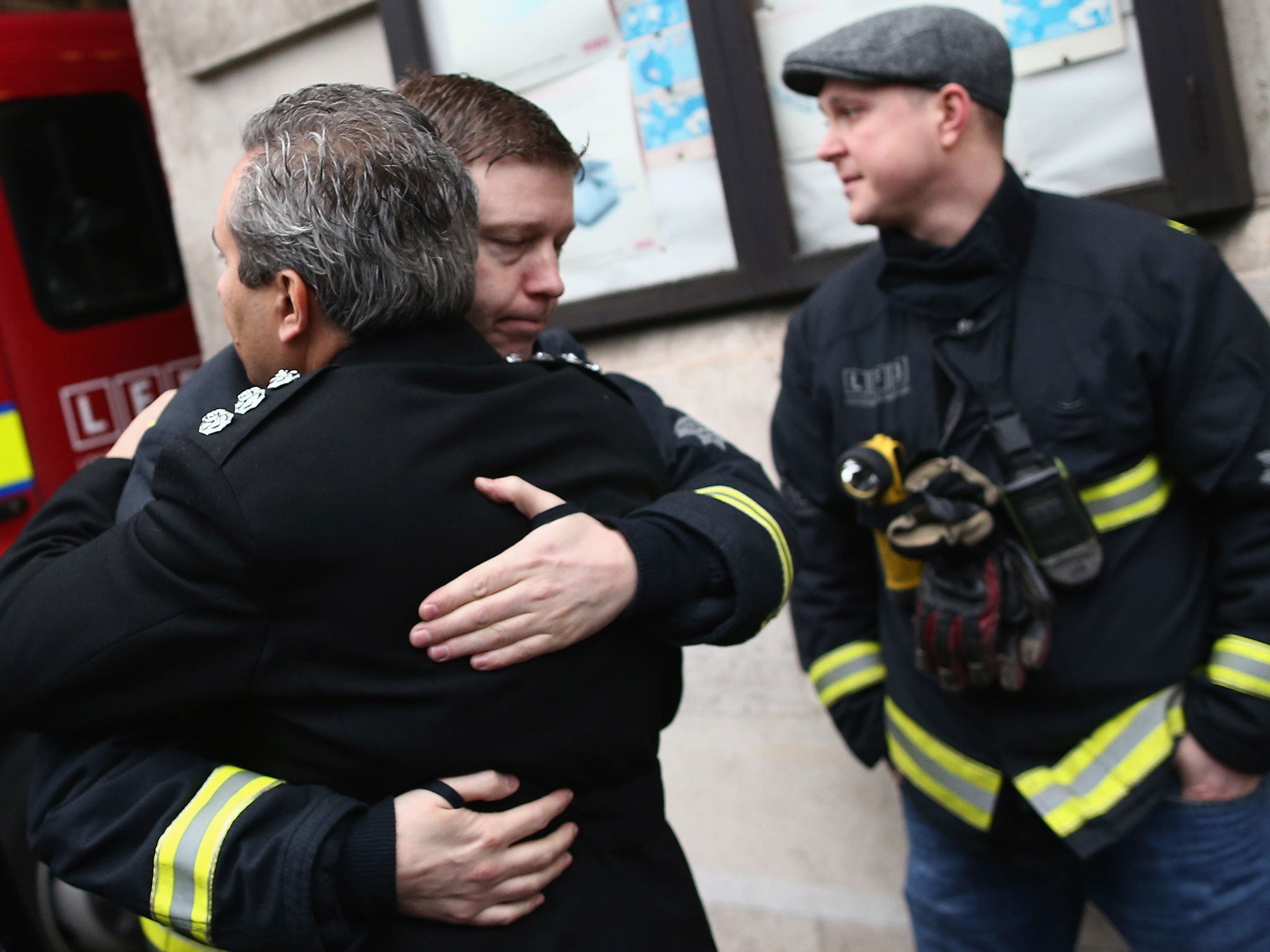Firefighters have come back to Labour today because we finally found a leader worth backing in Jeremy Corbyn
Corbyn tapped into the widespread hostility to the bland and insipid soup that forms much of Westminster politics


Your support helps us to tell the story
From reproductive rights to climate change to Big Tech, The Independent is on the ground when the story is developing. Whether it's investigating the financials of Elon Musk's pro-Trump PAC or producing our latest documentary, 'The A Word', which shines a light on the American women fighting for reproductive rights, we know how important it is to parse out the facts from the messaging.
At such a critical moment in US history, we need reporters on the ground. Your donation allows us to keep sending journalists to speak to both sides of the story.
The Independent is trusted by Americans across the entire political spectrum. And unlike many other quality news outlets, we choose not to lock Americans out of our reporting and analysis with paywalls. We believe quality journalism should be available to everyone, paid for by those who can afford it.
Your support makes all the difference.The Fire Brigades Union has voted to affiliate to Labour today – having cut ties with the party over a decade ago in 2004. And it was for good reason, too.
In 2002, our union launched a campaign for improved pay. Regardless of the merits of our case, what shocked firefighters was the level of hostility we encountered from many Labour politicians, including from those leading the party. This included, on one occasion, being described as fascists. And even though an apology was made, the damage had been done.
Here was a party which we helped to fund, attacking our union and attacking our service. There was outrage.
Our battle under the Blair government continued into 2003 and was followed by much local skirmishing. It left a legacy of bitterness against Labour at a national and local level. So, when the issue was to be debated at our Conference in 2004, it seemed inevitable that something would give.
Since then the union has maintained good relations with many Labour politicians, particularly those on the left. With John McDonnell, we established a parliamentary group which has consistently raised fire service issue in Westminster and which has stood with firefighters on a range of issues, including when we challenged the Blair/Brown government over its mis-named 'modernisation' agenda.
So when Jeremy Corbyn announced he would run for the Labour leadership, it was not a controversial idea that we should back him. Corbyn has a very long record of supporting firefighters, going back to 1977. Indeed, just last year we marked his long contribution by presenting him with one of our long service badges. We backed him initially despite the fact that we were not affiliated, and at the time we weren’t at all sure he would win the leadership elections.
But the campaign over the summer was remarkable. It took everyone by surprise, including the ranks of bemused media commentators who struggled to understand how such supposedly outdated ideas as those raised by Corbyn could get such an echo.
What they missed was that Corbyn tapped into the widespread hostility to the bland and insipid soup that forms much of Westminster politics. Thatcher's famous claim that 'There is no alternative' had successfully created a new consensus which all party leaders - or aspiring leaders - were supposed to buy into. This holds that markets must rule as much as possible; that our public services must be run increasingly as businesses and then, as soon as possible, should be sold off.
It rejects any serious debate about workers' rights – for instance, the idea that workers should be able to speak for themselves through their own voluntary organisations: the trade unions. (We should remember that the Trade Union Bill currently being opposed by our unions starts broadly from where Thatcher left off. Blair and Brown did next to nothing to reverse the Tory attacks.) If austerity is demanded by the markets then that is what must be delivered.
The Corbyn campaign cut through this. It appealed to tens of thousands precisely because it did not reflect the mainstream consensus. It spoke of an alternative to austerity. It spoke about civil rights and opposition to war. It appealed to many 'traditional Labour voters' who may have drifted away, but also to young people looking for an alternative to long-term student debt and the prospect of being ripped off for yeas by private landlords.
As firefighters, we now have the chance to take part in shifting political debate in favour of ordinary people, in favour of public services and in favour of trade unions. That is a unique opportunity. We debated whether we should take part in it – and, happily, we decided that we should.
Matt Wrack is the general secretary of the Fire Brigades Union
Join our commenting forum
Join thought-provoking conversations, follow other Independent readers and see their replies
Comments